Student Loan Repayment
Photo credit: unsplash.com
This week’s post is a hot topic – student loans. The COVID-related student loan pause will end on January 31, 2022. Are you prepared to start paying again? You may be scrambling for options as the rumored mass student loan debt cancelation is still not a reality. Let’s look at the differences between federal and private student loans.
Government-backed student loans
If you qualified for a government student loan, there are different repayment options available to you because the terms of those loans are determined by law rather than by a private lender.
· May be subsidized or unsubsidized.
· You can choose between several repayment options, including an income-driven repayment plan. You have the option to change your repayment plan at any time.
· Depending on the type of federal student loan that you have, you may also be eligible for loan forgiveness by working in public service.
· These types of loans also allow for more flexibility if you need a deferment or to temporarily lower your monthly payment.
· If you are still in school whether it be part-time or full-time, your loan repayment can be paused until your enrollment status changes.
· Federal student loans feature a fixed interest rate, often lower than private loans or credit cards.
Private student loans
Private student loan terms vary from lender to lender and often do not offer the flexibility of a federal student loan.
· Private lenders do not usually offer subsidized loans.
· Your repayment plan is set at the start of the loan. You more than likely cannot make changes to this plan after your contract is signed.
· There are no programs for loan forgiveness.
· Contact your lender directly for hardship options that may be available to you.
· You will need to begin repayment regardless of your enrollment status.
· Depending on your lender, your interest may be fixed-rate or variable-rate.
If you are considering refinancing or consolidating your student loans, carefully consider your options. If you are working in public service, you probably don’t want to risk losing the loan forgiveness benefit by refinancing with a private lender. It is also worth noting that only federal student loans received the payment and interest rate pause at the onset of the pandemic. Likewise, if widespread student loan forgiveness does happen, it will only be granted for federal student loans.
Don’t jump to consolidate at the very first offer that you receive in the mail. Review your terms carefully and determine what the best move is for you.
Do you have questions about student loans? I want to hear from you. Comment below or email me.
Krista Kyte is a personal finance blogger and personal banker with over 18 years of experience in the financial industry. Krista is passionate about helping our members understand their financial situations. She writes tips that will help consumers reach and maintain financial security, and start living the life they’ve always wanted.




